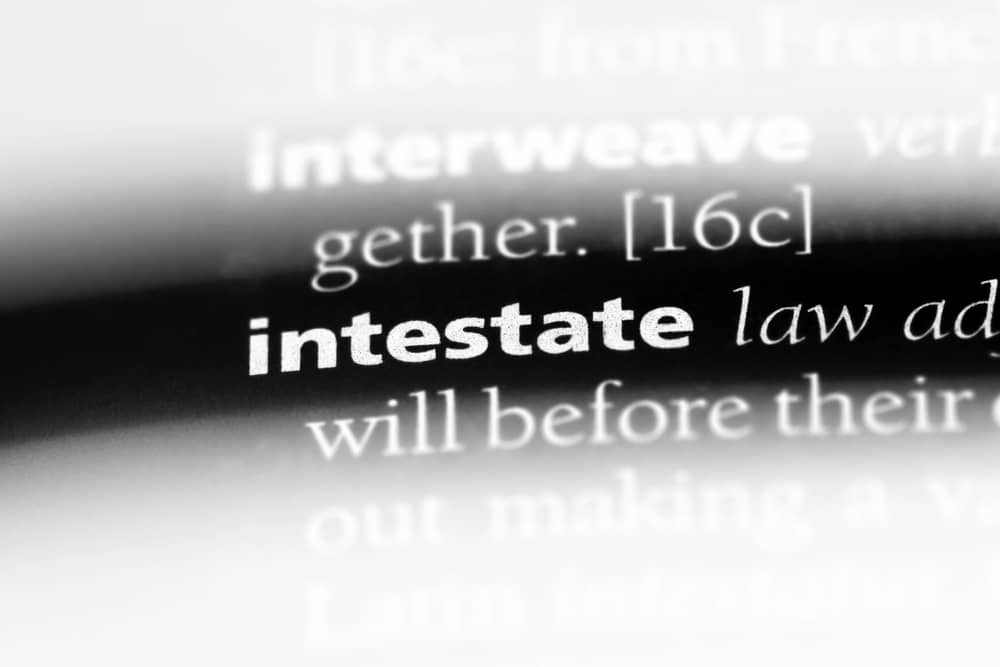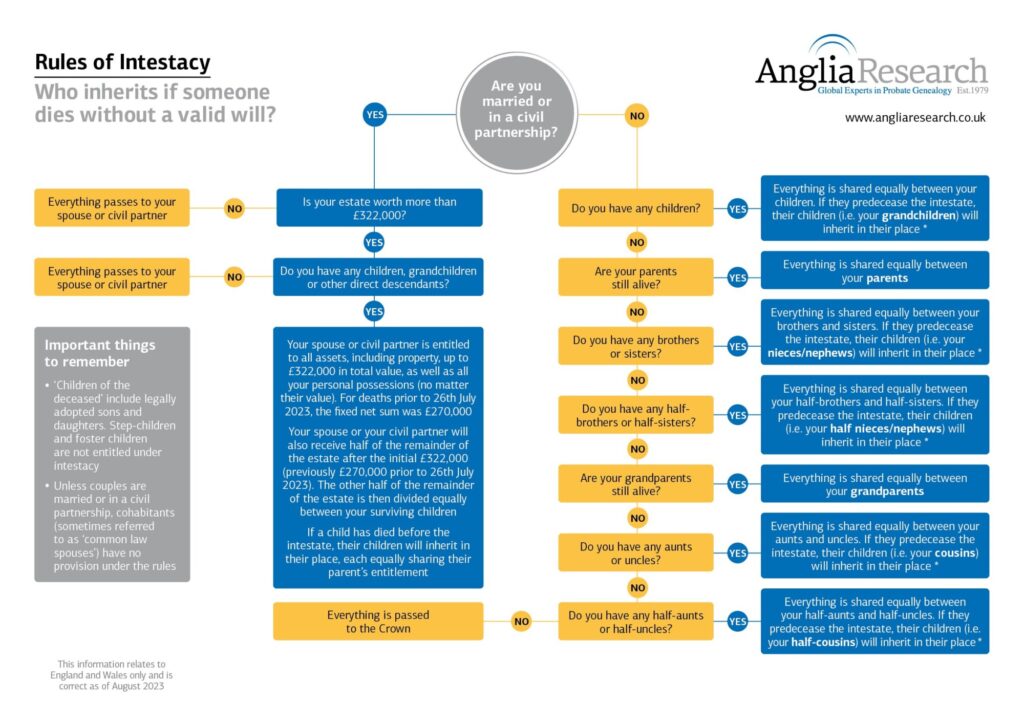What Does it Mean if Someone Dies “Intestate”?
Many people draw up a will before their death to ensure their estate is distributed according to their wishes. But what happens when someone dies without a valid will? Who stands to inherit the estate?
This article is all about what happens if someone dies intestate and what the rules are for intestacy.
What is Intestacy?
The definition of intestate is where a person dies without a valid will in place. In such a case intestacy law comes into effect which determines how the estate will be distributed. This law dates back to the Administration of Estates Act 1925 and sets out the rules on who inherits the estate based on family connections. These rules also come into play in cases of partial intestacy, when someone dies leaving a will that disposes of some but not all of their estate (the rules apply only to the distribution of property that is not covered by the will).
The Rules of Intestacy
The intestacy rules are strictly based on family connections and do not take into account the closeness of relationships or who may have the most need. This is done in a specific order of priority that cannot be altered. The following rules apply if someone dies intestate.
Married or in a civil partnership and has children
The surviving spouse or civil partner keeps all the assets, including property, up to a value of £322,000 . This also includes all personal possessions of the deceased plus half of the remainder of the estate. The other half of the remainder is shared between any surviving children. If a child is already deceased, the inheritance is shared between their children.
Married or in a civil partnership and has no children
If there are no children or their descendants, either predeceased or non-existent, then the whole of the estate will go to the living spouse or civil partner. This includes all the deceased’s personal property plus interest on the estate from the date of death.
Unmarried and has children or grandchildren
If there is no spouse or civil partner, whether by death, divorce or no relationship legally being recognised, the deceased’s children will receive the estate’s proceeds equally when they turn eighteen. This includes both biological and adopted children (but not stepchildren). If a child is deceased, their grandchildren or great-grandchildren can inherit in their place.
Unmarried with no children
If there are no spouses, civil partners, or children, then the estate may be distributed evenly among any surviving parents of the deceased. Should the parents be deceased, distribution falls to any brothers or sisters of the deceased (full-blood siblings are given priority over half-blood siblings). If all siblings are deceased, any surviving grandparents are the next in line to inherit. Finally, if the grandparents are also deceased, the inheritance falls to the uncles and aunts of the deceased or their children.
Unmarried with no living relatives
If there are no spouses, civil partners, children or living relatives, then the whole of the estate is passed to the Crown under a rule known as bona vacantia. It is then up to the Treasury Solicitor to decide how to deal with the estate.
For more information on the rules of Instency visit our dedicated page – Intestacy Rules.
You might also like to view below our intestacy rules flowchart (applicable to England and Wales):

Who cannot inherit?
If someone dies intestate, the following people cannot inherit according to intestacy rules:
- Unmarried partners who are not in a civil partnership.
- Relations by marriage (e.g. in-laws, stepchildren, etc).
- Anyone else – not carers, friends etc
How is an estate distributed if someone dies without a will?
Find out more about estate distribution under intestacy rules by exploring our guide or read our blog post about what happens if you die without a will.
Anglia Research
Contact our team today – we have the knowledge and expertise to unravel even the most complicated of cases. Or to learn more about the laws of intestacy.
2025 Anglia Research Services All Rights Reserved.
Anglia Research and Anglia Research Services are trading names of Anglia Research Services Limited, a company registered in England and Wales: no. 05405509
Marketing by Unity Online









